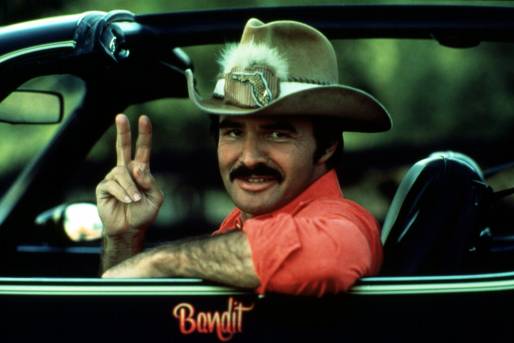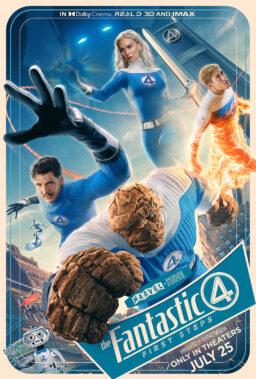We’ve just been through a remarkably old-fashioned summer at the movies: A summer during which the big hits were a space opera, a romantic melodrama, a thriller about sunken treasure and even one more absurdist frolic with good old James Bond. Summer is traditionally the season for quick, shallow entertainments, but the summer of 1977 outdid itself, and was astonishingly successful at it; Variety, the show-biz bible, calls this the best summer in years at the movie box office.
The leader, of course, was “Star Wars,” a phenomenal success which is still grossing an average of $1.5 million a day, and will pass “Jaws” to become the all-time box-office champ. But consider these other enormous summer hits: “The Other Side of Midnight,”“The Deep,” “The Spy Who Loved Me,” “Smokey and the Bandit,” and “One on One.” Taken together, they almost add up to a shopping list of reliable old Hollywood genres — the only things missing are a Western and a musical (there was “New York, New York,” but it didn’t quite take off).
Some of these hit movies are very good, of course, but quality is apparently not the key criteria (because others, like “The Other Side of Midnight,” are awful), What they mostly have in common are easily described subjects, attractive heroes and heroines, good special effects, strong story lines and happy endings. A few on the list may lack one or another of these attributes (“One on One, “a charmer about a kid who tries to make a big-time college basketball team has no special effects but is strong on the heroism and happy ending). But they all promise a couple of hours of skillful escapist entertainment.
Ten years ago, movies like these were supposed to be done for. Cinema was sweeping the college campuses as a suddenly rediscovered art form, we all agreed, and “Easy Rider,” with its blissfully stoned heroes and near-total lack of narrative structure, was lining them up around the block. Benjamin, of “The Graduate,” was the new model of the movie hero, and old-fashioned, Hollywood-style movies — with big stars, dependable genres and stories as strong and simple as their heroes — were supposed to be relics of the past.
But it turns out (as with more perspective, we might have suspected) that a lot of the movies of 10 years ago now seem more dated than those reliable old Hollywood potboilers. Look at “The Graduate” again the next time you have the opportunity and decide for yourself if it stands up as well as “El Dorado,” a Western starring John Wayne that was released in the same year. No matter what technical and stylistic innovations the movies come up with from decade to decade, they still depend on the telling of tales to keep us enthralled.
Let’s take a closer look at some of the biggest hits of summer 1977:
“Star Wars” is a prodigious achievement in special effects and animation, and its dogfight between space cruisers is one of the most difficult such scenes ever put into a movie. But the story itself is simplistic escapism (the director, George Lucas, set out to make a children’s movie), and the characters are scarcely more complex than the originals (Buck Rogers, Flash Gordon) they were inspired by. Even though the movie will become the all-time box-office champion, it hasn’t inspired a tenth as much serious discussion as Stanley Kubrick‘s benchmark “2001: A Space Odyssey.”
“The Other Side of Midnight” forces us to our pocket calculators to determine how many novels and movies in recent years have been about rich Greek shipping tycoons and mysterious international beauties. It’s not merely ridiculous; it’s sublimely ridiculous, and knows as unerringly as the late Jacqueline Susann did just how dirty it can get and still appeal to middle America.
“The Deep” has great underwater photography, yes. But, even more, it has nerve. How could Peter Benchley (who manufactured the book) have known that there was still a market for a boy-meets-girl story mixed in with a hunt for buried treasure and spiced with a salty old seadog and a little kinky voodoo? This sort of story was supposed to be old stuff 20 years ago. Now it’s grossing millions, and everyone lining up to see it can’t be a Nick Nolte fan, because somebody has to be bright enough to drive the cars to the theaters.
“The Spy Who Loved Me” is the latest in the James Bond series, a series that has prevailed during five presidencies, a war, man’s landing on the moon and the introduction of the Fiesta and still betrays no signs of ending. This is, to be sure, the very best Bond in a long time, but perhaps its makers sensed that this summer we’d be especially primed for another fantasy starring 007.
“Smokey and the Bandit” is the latest (and, he says, the last) Good Ol’ Movie from Burt Reynolds, who does this sort of thing better than anyone else (even if he doesn’t always convince us that it should be done at all). It’s basically a chase movie, and chases have been the staple of the movies, almost since they were invented. Chases used to be mostly on foot or horseback; now they’re in cars. The American movie going public seems to be ready for at least one big one a year.
“One on One” is the story of the underdog kid fighting the system: This time he plays basketball, but we’ve seen him before as a boxer, an Army private, a big band drummer and even an organization man. There is one thing certain about a movie like this: At the end, the hero will preserve his integrity and get the girl.
Some of these movies are really very good (I especially liked “Star Wars,” “The Spy Who Loved Me” and “One on One”). They’re likely to be around for a long time, delighting us at revivals and on the late show long after some of the season’s more pretentious films have been cut up to make ukulele picks. But as someone who finds it exciting when a movie tries something new, dares to be innovative and individual, I’m of two minds about the enormous box-office successes of these essentially old-fashioned formulas.
I read the other day that 13 percent of total U.S. paperback sales (yes, 13 percent) consist of those dumb little Harlequin Romances, in which Boy has by now met Girl in more than 2,000 ways, all of them PG-rated. There must be millions of people who like their entertainment predictable and dependable — who find reassurance in the repetition of the same durable formulas with their obligatory happy endings. And if Hollywood thinks it has learned its lesson during the summer of 1977 and grows single-minded about turning out expensive remakes of remakes, we are going to start wondering, with the new releases of two or three years from now, if we haven’t seen all these movies before somewhere.












